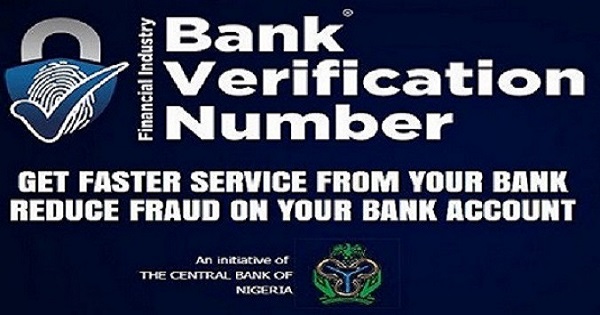E-Financial
Sterling Bank Unveils App that Turns Mobile Phones Into PoS

Sterling Bank Plc has launched OnePay for Business, a mobile app that empowers merchants to use their mobile phones as Point-of- Sales systems.

It allows merchants and their customers to receive and make cardless, contactless and cashless payment for goods and services in a near-cash form using QR Code, Bluetooth and PaywithSpecta.
Dipo Alabede, group head, Digital Banking at Sterling Bank, while introducing OnePay for Business in Lagos, said it meets the need for a hygienic payment method in a COVID-19 world.
“The contactless payment feature on the app is essential for merchants and customers because it keeps both safe as the world combats the coronavirus pandemic. It is also an effortless way to make payments.”
According to Alabede, OnePay for Business is easy to use and available for download on the Android Play Store and iOS Store.
It requires a smartphone with an internet connection to set up. After setting up, customers can log in to use payment options that include QR Code, nearby payment (Bluetooth) and PaywithSpecta.
A QR code is a unique barcode containing the merchant’s business name, QR merchant ID, and other information encoded into it.
Instead of manually entering data into their mobile phones, customers would scan a merchant’s QR code using the QR feature on their app to start the payment process.
Alabede explained that customers could make payment using the app’s QR feature if it is enabled as a part of their mobile banking offerings.
“To pay merchants, customers have to open their OneBank app or any other bank mobile app to select the QR service option, validate and complete the transaction.”
He identified being able to make payments anytime and anywhere, even without a wallet or sufficient cash at hand, as one of the benefits of using the Sterling QR Service.
He added that merchants could also accept payments anytime and anywhere by using the mobile app.
Urging merchants to download and use the app, the Executive Director, Commercial Banking at Sterling Bank, Tunde Adeola, noted that it would save them money and reduce their cost of operations.
He added that the bank looks forward to supporting all merchants that will download and use OnePay for Business.
Olayinka Oni, chief digital officer of the bank, described OnePay for Business as another means of enriching lives through immediate settlement value for merchants.
He assured merchants and customers that the bank will continue to enrich the product, ensuring that it delivers on its promise leveraging the Nigeria Inter-Bank Settlement System (NIBBS) ecosystem for its overall benefits.
E-Financial
Non-Resident Registration Pushes BVN Enrollments to 66.2m in July

Bank Verification Number (BVN) database rose to a new high in July 2025, with total enrollments climbing to 66.23 million, a 4.3 per cent increase within the first seven months of the year, as Nigerians residing outside the country enrolled through the Non-Resident BVN (NRBVN) initiative.

The Central Bank of Nigeria (CBN) had, earlier this year, introduced the NRBVN, alongside the Non-Resident Nigerian Ordinary Account (NRNOA) and the Non-Resident Nigerian Investment Account (NRNIA), to attract diaspora investments into the country.
Subsequently, commercial banks with international licences took up the challenge, launching roadshows to help Nigerians abroad open accounts and enrol in the biometric identity system.
This effort drove up the number of enrollments from the 63.48 million recorded as of December 2024.
According to the latest figures from the Nigeria Inter-Bank Settlement System (NIBSS), 2025 is shaping up to be one of the most active years for BVN registration since 2021.
Over the past four years, BVN growth has maintained a steady upward trend: from 51.9 million in 2021, enrollments rose by 7.9 per cent to 56 million in 2022, followed by a 7.4 per cent increase to 60.1 million in 2023.
Growth moderated slightly in 2024, with a 5.6 per cent rise, but the 4.3 per cent increase already recorded by mid-2025 suggests this year could surpass last year’s total by December.
The NRBVN enables Nigerians living abroad to enroll for BVNs remotely, eliminating the need to visit bank branches in Nigeria.
At a cost of $50, the initiative has significantly broadened the system’s reach and strengthened diaspora engagement with the country’s formal financial services.
The spike in non-resident enrollments has also been supported by stricter Know Your Customer (KYC) requirements across the banking sector and deeper collaboration with fintechs that streamline the onboarding process.
Together, these efforts have reinforced the BVN’s role as a cornerstone of digital identity and financial inclusion in Nigeria.
Alongside the rise in BVN registrations, the banking sector is witnessing increased account activity.
As of March 2025, the number of active bank accounts reached an all-time high of 320.053 million.
Dormant accounts stood at 33.4 million, while 29.4 million accounts had been closed.
This compares to slightly lower figures in February, which recorded 316.8 million active accounts, 19.9 million dormant accounts, and 33.3 million closures.
The rebound in March points to a growing number of Nigerians re-engaging with the formal banking system, aligning with broader efforts by financial institutions and regulators to promote access, trust, and compliance within the financial sector.
E-Financial
Zenith Bank rolls out drums for D’Tigress, rewards team with N200m

Zenith Bank Plc on Tuesday rewarded Nigeria’s senior women’s basketball team, D’Tigress, with ₦200 million for winning the 2025 FIBA Women’s AfroBasket Championship.

L-R: Executive Director, Mr. Henry Oroh; Executive Director; Mr. Louis Odom; D’Tigress Captain, Amy Okonkwo; President, NBBF, Engr. Musa Kida; Group Managing Director/ Chief Executive, Zenith Bank Plc., Dame (Dr.) Adaora Umeoji, OON; Head Coach, D’Tigress, Rena Wakama; Executive Director, Mrs. Adobi Nwapa and Executive Director, Mr. Akin Ogunranti during the reception hosted by Zenith Bank to celebrate D’Tigress’ 2025 Afrobasket Women’s Championship triumph in Abuja, yesterday.
The reception, held at the bank’s head office in Maitama, Abuja, was organised to honour the team for clinching a historic fifth consecutive AfroBasket title.
Each player is expected to receive ₦10 million, which will be paid into their Zenith Bank accounts, while the technical crew and other officials will share the balance.
D’Tigress defeated Mali 78–64 in the final played in Abidjan on Sunday. The team returned to Nigeria on Monday and was received by President Bola Tinubu, who conferred National Honours of Officer of the Order of the Niger (OON) on the players and gave them cash rewards.
Zenith Bank has sponsored the Women National Basketball League for 18 years, with several players and officials of the current team having passed through the league.
Among them are Murjanatu Musa, MVP of the Air Warriors team that won the 2022 league title, and Ifunnaya Okoro. The team’s head coach, Rena Wakama, also played in the league with First Bank Women Basketball Club.
Present at the reception were Zenith Bank Executive Directors Adobi Nwapa, Akin Ogunranti, Henry Oroh and Louis Odom.
Also in attendance were the Chairman of the National Sports Commission, Mallam Shehu Dikko, President of the Nigeria Basketball Federation (NBBF), Musa Kida, and other board members.
Speaking at the event, the Group Managing Director/Chief Executive Officer of Zenith Bank, Dame (Dr.) Adaora Umeoji, OON, commended the team for their performance and reaffirmed the bank’s commitment to supporting women’s basketball in Nigeria.
“Your victory at the 2025 FIBA Women’s AfroBasket is not just a win for Nigeria, it is a win for African sports,” she said.
Responding on behalf of the team, captain and tournament MVP, Amy Okonkwo, thanked Zenith Bank for its continued support for women’s basketball in the country.Zenith Bank Plc
E-Financial
SEC DG Warns as Crypto Adoption Rises in West Africa Without Proper Regulations

Dr. Emomotimi Agama, Director-General of the Securities and Exchange Commission (SEC) Nigeria, has said that West Africa is fast emerging as a global epicentre for virtual asset adoption, propelled by a young, tech-savvy population and macroeconomic instability.

Speaking at the West Africa Compliance Summit organised by the Inter-Governmental Action Group against Money Laundering in West Africa (GIABA) in Praia, Cape Verde, Dr. Agama warned that while the region’s embrace of digital currencies is accelerating, the absence of coordinated regulation leaves it vulnerable to financial crimes and illicit capital flows.
“With over 60 percent of West Africa’s population under the age of 25 and mobile-first fintech platforms thriving, the region has become a global hotspot for virtual asset adoption,” he said. “But we must act decisively. Regulation is not optional, it is an imperative.”
The summit, themed “Adapting and Thriving in a Complex and Evolving Compliance Landscape,” brought together financial regulators, compliance professionals, and security experts to explore the challenges posed by the rapid rise of virtual assets and decentralised finance (DeFi).
Dr. Agama disclosed that crypto transactions in Nigeria alone surpassed $56 billion in 2024, with citizens increasingly turning to stablecoins such as USDT and USDC to hedge against volatile local currencies. He highlighted the growing trend of “crypto-dollarisation,” noting that young professionals now demand salaries in stablecoins, while businesses are adopting platforms like Binance Pay for cross-border transactions.
“The naira’s depreciation, Ghana’s cedi weakness, and persistent forex shortages have fueled this shift,” he explained. “Traditional remittance channels charge up to 10 percent in fees, while cryptocurrencies offer faster and cheaper alternatives. Over $20 billion in remittances flowed into West Africa last year through crypto channels.”
However, he also cautioned that the same innovations driving financial efficiency are increasingly being exploited by fraudsters and criminal actors. He cited GIABA’s report of $2.1 billion in suspicious crypto-related transactions across West Africa in 2024 alone, including the use of privacy coins by terror financiers to evade detection.
“Unregulated exchanges, artificial market crashes, DeFi ‘rug pulls,’ and Ponzi schemes have wiped out billions in investor funds,” he said. “The recent collapse of the CBEX Ponzi platform is just one of many such incidents. Strong regulation and regional coordination are the only path forward.”
Dr. Agama pointed to Nigeria’s recent legislative progress, especially the enactment of the Investment and Securities Act 2025, which formally classifies virtual assets—including cryptocurrencies, stablecoins, utility tokens, and NFTs—as securities under Section 355(4) and Part I of the Second Schedule.
“Under the new law, all exchanges, wallets, and DeFi platforms must be licensed by the SEC,” he stated. “We’ve also established a Fintech and Innovation Department to facilitate ongoing dialogue with industry stakeholders and adapt our regulations to emerging realities.”
He called on West African governments to harmonise regulatory frameworks and strengthen intelligence-sharing, proposing a Unified Virtual Asset Service Provider (VASP) Licensing System under the ECOWAS framework.
“A crypto trader banned in Nigeria should not find safe haven in Ghana,” he asserted. “Financial crime knows no borders. Our collective future depends on our ability to secure this emerging financial frontier.”

 Telecom3 days ago
Telecom3 days agoNCC to Sanction Operators over Regulatory Violations

 General News3 days ago
General News3 days agoCustoms Ditches Fast Track Scheme for Authorised Economic Operator

 News3 days ago
News3 days agoFG to Move 5m Homes to Clean Cooking by 2030 — Minister

 E-Business2 days ago
E-Business2 days agoReport Reveals Over Half of Security Experts Overwhelmed Managing Cybersecurity Tools from Multiple Vendors

 Telecom3 days ago
Telecom3 days agoAirtel Africa Signs Multi-year Strategic Partnership with Xtelify

 E-Financial3 days ago
E-Financial3 days agoSEC DG Warns as Crypto Adoption Rises in West Africa Without Proper Regulations

 Telecom2 days ago
Telecom2 days agoMTN & Ultima Studios Kick Off Hunt for Nigeria’s Next Afrobeats Icon

 E-Financial3 days ago
E-Financial3 days agoNOVA Bank Deepens Market Presence with New Branches and Regional Focus






















